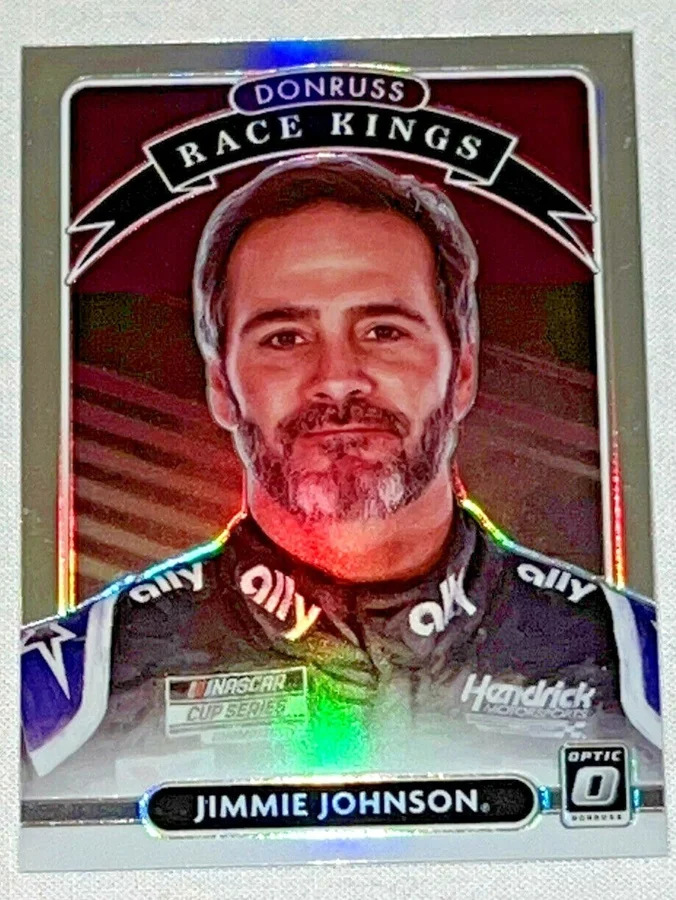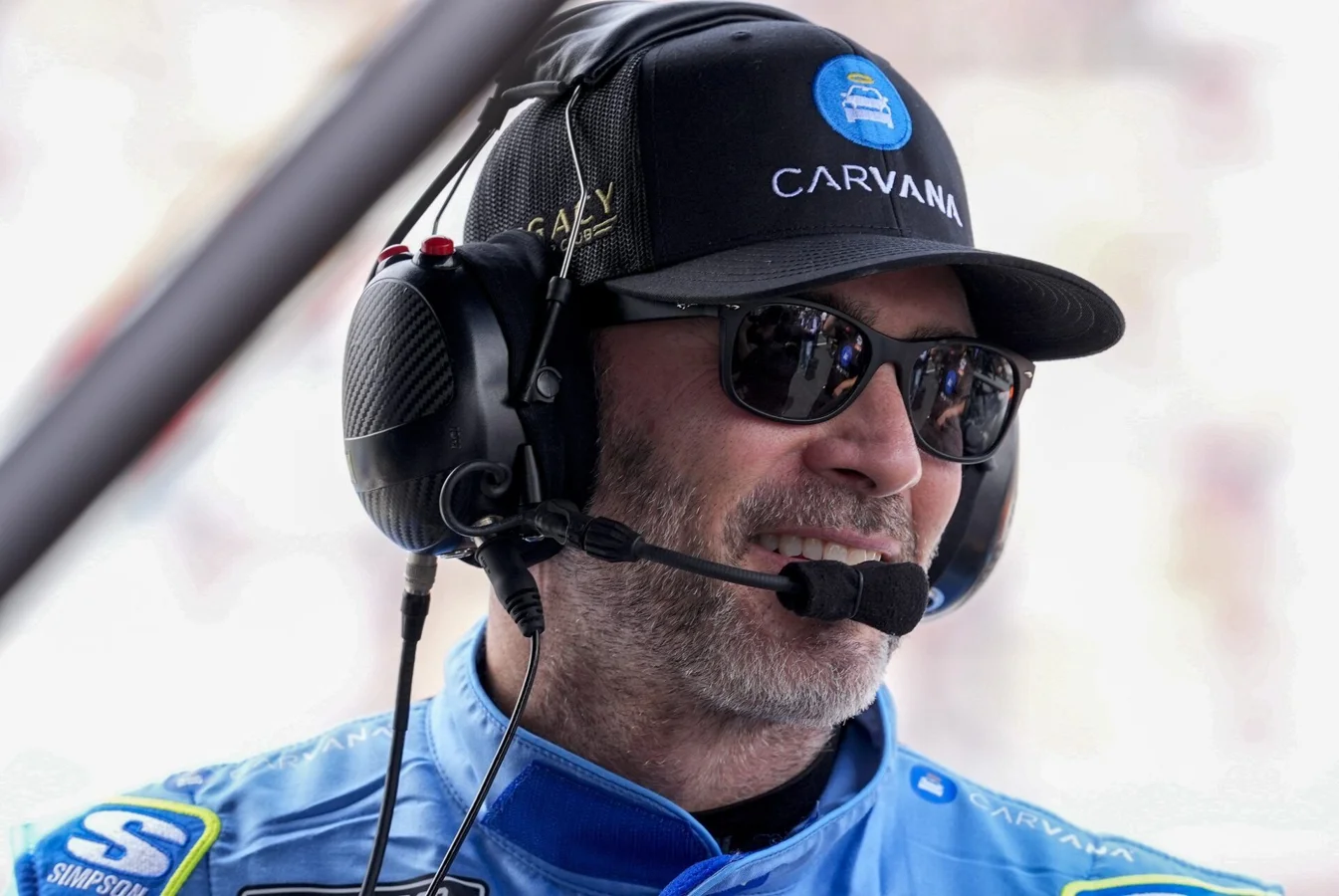NASCAR‘s bold move to bring the 2026 All-Star Race to Dover Motor Speedway has ignited controversy, with seven-time Cup Series champion Jimmie Johnson delivering pointed criticism about the venue’s suitability. This outspoken stance puts Jimmie Johnson Dover All-Star criticism at the center of renewed debate about the event’s purpose and future direction.
NASCAR‘s Shifting All-Star Venues Raise Questions
The NASCAR All-Star Race, since its 1985 debut at Charlotte Motor Speedway, has served as an annual showcase with no points at stake but plenty of pride and prize money. Over the years, the race has been hosted at several venues—Atlanta, Texas, Bristol, and more recently, North Wilkesboro—each shaping the character of the exhibition in unique ways.
Known for its unpredictable formats and high-stakes action, the All-Star Race has long delivered moments of extreme competition and on-track drama. From daring attacks to impassioned rivalries, the event attracts fans and competitors eager for something different from the regular NASCAR Cup Series schedule.
However, as NASCAR shifts the All-Star event from one locale to another, the spirit of the race has come under scrutiny. Enthusiasts and former champions, including Jimmie Johnson, have voiced concerns that recent decisions have diluted the event’s signature excitement.

Jimmie Johnson Voices Disapproval of Dover as All-Star Host
NASCAR’s announcement that the 2026 All-Star Race will take place at Dover Motor Speedway marks the first time the high-profile event lands on the one-mile concrete oval known as The Monster Mile. While Dover has an iconic reputation, its suitability for NASCAR’s most electrifying exhibition has been fiercely debated among fans and insiders.
Jimmie Johnson, who has enjoyed unprecedented success at Dover, did not hold back his opinions during a recent interview. After learning of the decision, he remarked,
“I’m scratching my head on that one,”
underscoring his puzzlement about NASCAR’s choice.—Jimmie Johnson, Hall of Famer
With victory at Dover a record 11 times, Johnson articulated why this circuit may not inject the thrill the All-Star Race is meant to have. He emphasized,
“not the type of venue the All-Star Race will shine at.”
—Jimmie Johnson, Hall of Famer
Johnson’s criticisms center on the nature of racing at Dover: narrow, concrete, and fast, the track does not encourage the wild, aggressive moves or daring bump-and-runs that have defined past All-Star spectacles. The tight dimensions and potential for serious incidents compel drivers to race more conservatively, reducing the sense of chaos that fans look forward to. According to Johnson, the All-Star format thrives on risk and spectacle—qualities he believes Dover cannot deliver.
By moving away from North Wilkesboro Speedway, which had revived interest with lively short-track duels and palpable fan excitement, NASCAR is taking a gamble that may not pay off for loyal followers seeking high drama. Johnson’s opinions—rooted in deep experience—serve as a sobering reminder of what fans have recently enjoyed about the event’s short-track battlefields.
He also addressed the issue of incentive, specifically the race’s financial rewards.
“I mean there’s a million on the line. Should be five,”
Johnson stated, highlighting his belief that a larger purse is necessary to motivate today’s competitive field.—Jimmie Johnson, Hall of Famer
For Johnson, the All-Star Race is an opportunity for drivers to take bold risks, but without adequate financial stakes, drivers may not push the limits as he and his peers once did. The million-dollar prize, attractive in past decades, may no longer carry the same weight to encourage the level of heart-pounding action expected by fans and insiders alike.
Redefining the All-Star Race and Its Traditions
At the core of Johnson’s remarks lies a pivotal question: What should a NASCAR All-Star Race be in the current era? To many, it is less about adhering to tradition or specific locations and more about serving up an experience distinct from standard Sunday racing. The very nature of an “All-Star” event presumes chaos, a break from the ordinary, and a reward structure that entices participants to put everything on the line.
With the venue now set for Dover, some argue that the competitive edge and unpredictable magic that has characterized celebrated All-Star Races are at risk. The All-Star Race has always differentiated itself by pushing drivers into situations where they must balance skill with fearlessness. Johnson’s assertion suggests that without a dramatic circuit and significant rewards, the race could fail to captivate both drivers and audiences.
Ironically, for a driver who has made Dover his domain, Johnson’s candid critique highlights the difference between technical mastery and what makes a race an unforgettable spectacle. His comments represent not only personal concern but also sentiments echoed by numerous fans and competitors who remember the All-Star Race for its audacity and drama.
Jimmie Johnson’s relationship with Dover is both storied and complex, adding depth to his concerns. Although he voices doubts about its All-Star credentials, Dover remains the site of his greatest triumphs.
Jimmie Johnson’s Unparalleled Dominance at Dover
Jimmie Johnson’s performance at Dover Motor Speedway stands as one of NASCAR’s most commanding achievements. Since earning his first Cup victory there in 2002, Johnson has amassed a historic total of 11 wins at The Monster Mile—more than any competitor in the sport’s history.
Dover’s relentless one-mile concrete surface and challenging banked corners demand precision and nerve. Johnson’s ability to thrive in these conditions—managing long green-flag stretches, preserving his tires, and expertly weaving through dense traffic—earned him the title of “King of Dover” among fans and drivers alike.
His record spans both spring and fall races, each featuring memorable on-track battles. Notably, his performance in the 2009 AAA 400, where he led 271 of 400 laps, remains a benchmark for dominance and strategic adaptability at the venue. With victories stretching from his rookie season to the twilight of his full-time career, Johnson has set an unreachable standard at Dover, shaped by his technical finesse and racing intelligence.
As NASCAR prepares for its All-Star debut at Dover, the conversations stirred by Johnson’s criticism gain further weight. Few possess a deeper understanding of the track’s challenges and rewards, and fewer still have demonstrated such mastery at any single venue. For fans of the sport and the event, Johnson’s words invite a reassessment of what the All-Star spectacle should embody moving forward.
The Road Ahead for NASCAR‘s All-Star Race
The decision to host the 2026 All-Star Race at Dover has opened a spirited dialogue about the identity and evolution of NASCAR’s midseason showcase. Jimmie Johnson’s doubts, rooted in exceptional experience and achievement at the venue, have fueled broader conversations among enthusiasts, competitors, and the wider racing audience.
As NASCAR seeks to balance tradition, spectacle, and innovation, the coming All-Star event at Dover will serve as a proving ground—not only for drivers eager to cement their place in history but also for the decisions that shape the sport’s future. Whether Dover’s tight, concrete confines can deliver the chaos and excitement fans crave, or if the move will underscore Johnson’s warning, remains to be seen. What is clear is that Johnson’s candid feedback has set the tone for heightened scrutiny and anticipation ahead of the 2026 All-Star Race.
